Over the past eight years, our research team has exemplified entrepreneurial leadership in higher education by spearheading a mission to support and grow Europe’s agri-food sector; a sector under immense pressure from climate change, digital disruption, and economic volatility. What began as a two person research team has now grown into a dynamic, multidisciplinary team of six core researchers, with additional part-time roles created across multiple collaborative projects and a number of partnerships across Europe. Our team has established international connections and is actively advancing research to promote agri-food entrepreneurship across Europe, Vietnam, Singapore, and Ukraine, reflecting a growing vision, global reach, and deepening impact. To date, we have secured €2.7million in research funding, led eight Erasmus+ funded projects focused on strengthening Europe’s agri-food sector through entrepreneurial education and training, and have been invited to partner on several European projects. In Ireland, we successfully secured over €500,000 to design and deliver a Food Innovation and Entrepreneurship course (2017-23) tailored to the entrepreneurial training needs of Irish food producers. This model was later adapted with Irish Aid funding to train 90 female food entrepreneurs in Vietnam. Our research has been shared globally in the US, Australia, Vietnam, Singapore, and Europe through publications and presentations at leading international conferences, advancing agri-food entrepreneurship education At the heart of our work lies a commitment to equipping educators, learners, farmers, and food producers with the entrepreneurial knowledge, practical skills, and innovative mindset required to navigate a sector in transition. Through co-designed, experiential courses, digital toolkits, and strategic partnerships with educators and stakeholders across Europe, we have embedded entrepreneurial education into the agri-food landscape which is traditionally an under-served area in higher education. The COVID-19 pandemic highlighted the need for resilience, prompting us to develop digital upskilling programs that supported producers who had lost market access. We embraced creativity and co-creation, delivering accessible, community-driven learning through digital platforms. Our approach is underpinned by a vision to not just observe change, but to lead it by cultivating entrepreneurial capacity within the communities that sustain our food systems. We have turned research into action, challenges into opportunities, and ideas into ecosystems of innovation that serve both academia and society.

4th PLACE
Entrepreneurial Leadership Team of the Year Award
Dr Lisa Ryan and Maria McDonagh, Atlantic Technological University, Galway, Ireland.
4th PLACE Entrepreneurial Leadership Team of the Year Award
Atlantic Technological University, Galway (ATU, Galway) - Ireland (Republic)
"Entrepreneurship Education for a Sustainable Food Future."

Engage on social media
(Dr Lisa Ryan LinkedIn account)
(Maria McDonagh LinkedIn account)
(Official AWARE project Instagram account)
(Official DigiFE project Instagram account)
(Official DiSHEd project Instagram account)
(Official Train to Sustain project Instagram account)
(Official ReImagine Food project Instagram account)
(Official ReImagine Food LinkedIn project account)
(Official Nutrition Education for Health Care Professionals LinkedIn project account)
Have a say and vote for this entry to win the People's Choice Award!
500 points per vote
Provide your email address and click on "vote". You will then receive an email that enables you to verify your vote by clicking on a link.
1500 points for each share/re-post; 500 points for each like
Support this entry by engaging with it on Social Media.
Summary
Key People
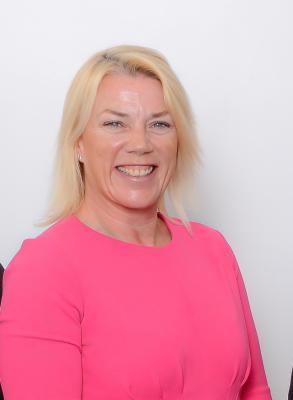
Dr Lisa Ryan
Head of School of Science and Computing
Department of Sport, Exercise and Nutrition,
Atlantic Technological University, Galway (ATU, Galway)

Maria McDonagh
Research Project Manager
Department of Sport, Exercise and Nutrition,
Atlantic Technological University, Galway (ATU, Galway)
Acknowledgements
The projects were led by the project team from Atlantic Technological University (ATU), Galway, Ireland working in partnership with a number of project partners across Europe. The European projects were funded with support from the European Commission as part of the Erasmus+ KA2 fund.
Images
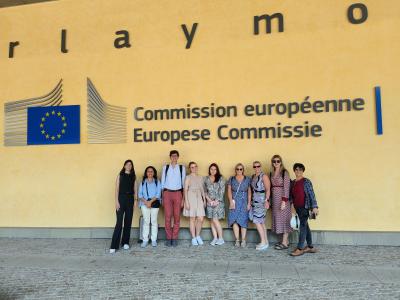
AWARE project team meeting, Brussels
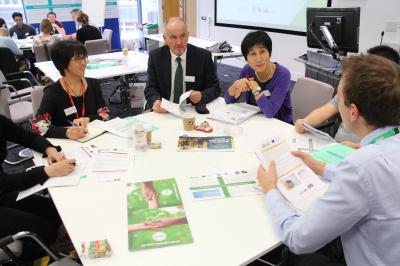
"Creating Entrepreneurs in Food" EU funded project_Teacher training event at University of Bedfordshire, UK
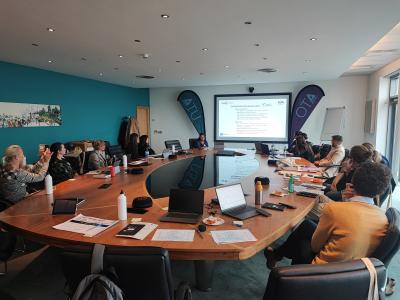
DigiFE Project Teaching and Learning mobility event, Ireland
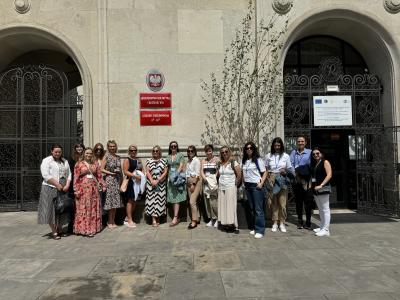
DiSHEd Project Teaching and Learning mobility event, Poland
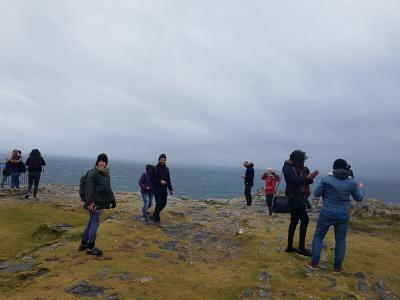
European agri-food entrepreneurs exploring the Aran Islands, Galway on the west coast of Ireland. Meeting Irish agri-food entrepreneurs living in remote locations.
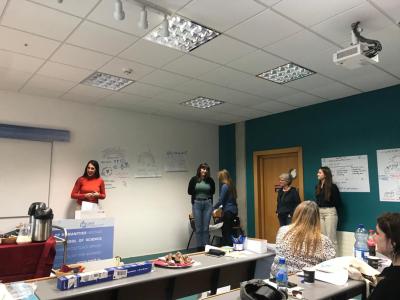
European female food entrepreneurs attending a training event in Ireland as part of AWARE project
IMPACT STORY
Impacting lifes
The project team highlights the collective impact of a portfolio of projects, representing the broader transformation driven by research and educational interventions. The team is committed to advancing entrepreneurial education; enabling educators to integrate entrepreneurship, food sustainability, digital innovation, and green skills into agri-food curricula. Over 100 educators across six countries have been upskilled through our projects, with more than 30,000 stakeholders engaged via tailored training, MOOCs, toolkits, and digital platforms with over 1,700 active users. These efforts have enriched and adapted curricula aligned with the UN SDGs and the EU Green Deal, preparing graduates not only for employment but also to launch entrepreneurial ventures that strengthen local economies and support sustainability goals.
One of our proudest achievements has been the creation of an inclusive infrastructure that nurtures female agri-food entrepreneurs through mentoring and sector-specific training ensuring equitable participation in shaping the future of food. Through our female-focused projects, the research team has engaged with over 265 women in the agri-food sector across Europe and Vietnam.
Crucially, our projects are not confined by borders. Strategic alliances with Monash University (Australia), Nong Lam University (Vietnam), and Ukrainian universities through Erasmus+ projects demonstrate the scalability and adaptability of our model across cultural contexts. These collaborations not only foster resilience and capacity-building but enrich our shared learning environments with diverse perspectives. By involving academic, industry, and community stakeholders in the co-design of programmes, we are cultivating entrepreneurial mindsets and leading the transformation toward a more resilient, innovative, and sustainable agri-food future.
LEARNINGS
Lessons learned
A central learning for the team is the importance of tailoring entrepreneurial education to the specific needs of the agri-food sector. Traditional training methods often overlooked the realities faced by food producers and entrepreneurs. In 2016, the project team developed a “Food Innovation and Entrepreneurship” course to strengthen entrepreneurship within Ireland’s agri-food sector. Through this initiative, they engaged directly with Irish agri-food entrepreneurs, uncovering that peer-led, practical learning approaches were more effective than conventional methods and fostered deeper and more enduring entrepreneurial growth. This insight laid the foundation for a European-scale response. Since 2017, the team has led eight Erasmus+ projects to co-develop entrepreneurial training tailored to the needs of educators and learners in the agri-food sector. These projects took a highly collaborative and inclusive approach, ensuring stakeholders helped shape outcomes. The training resources were designed to be accessible, and regionally adaptable, reflecting the diversity of entrepreneurial contexts across Europe.
Another key learning is the value of iterative development. Entrepreneurial skill needs evolve driven by digital transformation, sustainability challenges, and shifting market demands. The team’s model responded by continuously integrating new insights into successive projects. For example, recognising gaps in digital skills and market access led to training in e-commerce and online business development.
Furthermore, the adaptability of the model was demonstrated internationally, notably in Vietnam, where it was customised to support 90 female agri-food entrepreneurs. These experiences show that impactful entrepreneurial education must be practical, inclusive, research-informed, and rooted in the lived realities of those it aims to empower.
FUTURE PLANS
What's coming?
Building on the proven, practice-based approach, the team is committed to expanding its entrepreneurship research and initiatives across the global agri-food sector. Current project outputs grounded in real-world needs and designed for long-term sustainability are inherently scalable, enabling the team to adapt them to varied cultural, economic, and geographic contexts. Looking ahead, the team aim to deepen existing international partnerships and collaborations. These alliances provide access to diverse networks of educators, agri-food entrepreneurs, and sector stakeholders, strengthening the cross-cultural relevance and impact of current project’s. They are also working on developing regional partners in America, Africa, and Asia. By co-developing regionally tailored training resources, the team will continue to address emerging entrepreneurial challenges from climate resilience to digital innovation and inclusive growth. Developing insightful project concepts is a key priority for the team, who are also actively pursuing global funding streams including international development grants and multilateral programmes to support capacity-building efforts at scale.
Through this strategic focus, the team envisions a growing ecosystem of global agri-food entrepreneurs equipped with the skills, knowledge, and support systems necessary to lead sustainable, innovative change in their communities and food systems worldwide.

